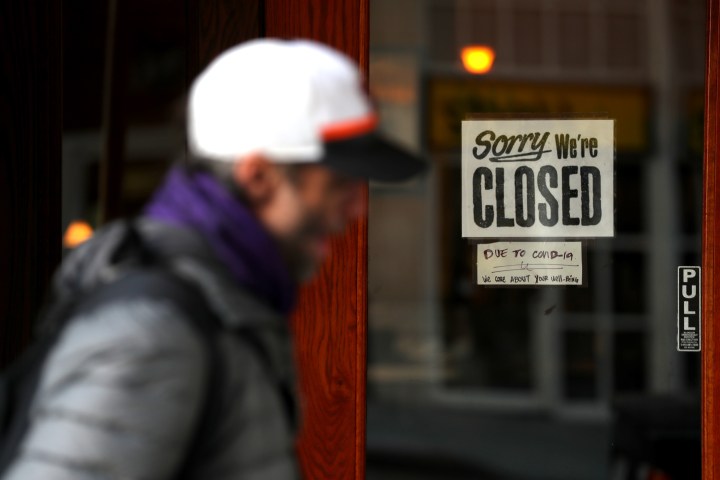
Much of the economy has stopped. Rent and other payments haven’t.
Much of the economy has stopped. Rent and other payments haven’t.

Millions of Americans have lost their jobs as industries come to a sudden halt because of the COVID-19 pandemic. There’s an economic disconnect happening for workers in real time.
As former Treasury Secretary Lawrence Summers said on Bloomberg TV recently: “In a sense, economic time has been stopped, but financial time has not been stopped.”
Melanie Long, an economics professor at the College of Wooster, said many Americans are suffering as this disconnect plays out in their everyday lives.
“Households are finding themselves in situations where income flows are reduced or have become non-existent, but payment obligations are still there,” Long said. These obligations include things like rent, mortgages, credit card and utility bills, and more.
Congress recently passed a $2 trillion coronavirus relief bill, but Long said the payments people receive may not fully cover these obligations.
“Even if we have income-based safety nets and employment-based safety nets, there’s a risk of an imbalance between one’s income flows and debt obligations, along with other kinds of payment obligations,” Long said. “There’s just not a safety net there.”
Long said this current situation is highlighting a problem we already knew existed — that many Americans are living paycheck to paycheck. According to a Federal Reserve study from 2018, 17% of adults were not able to pay their current month’s bills in full, and another 12% would not be able to pay their bills if they had an unexpected $400 expense to pay.
With rent payments due on Wednesday, we talked to some workers about how they’re seeing this disruption in the economy play out in their personal economies.
Maria Barillas
Brooklyn-based Maria Barillas is out of work because the restaurant she worked at is closed. She’s applied for unemployment insurance, but said the whole situation is making her feel hopeless.
“I believe that I can pay rent — like this month, and maybe next month — but I also have other bills, like, I have like credit cards to pay.”
Seth Schulman
Musician Seth Schulman teaches private lessons at a school in Chicago and performs on the weekends. He can’t teach his students from the school online, so he’s doing all he can to secure new students to teach via video call. He doesn’t have many clients yet and is still facing his rent and car payments.
“It feels like a nightmare that’s steadily approaching towards you.”
April Oliver
April Oliver recently graduated with a master’s degree in biochemistry and received a job offer from an environmental consulting company. However, her employer said the job offer would be delayed indefinitely because the lab is now closed. She’s hoping to find work as an online tutor to help pay her rent.
“I’m really nervous and worried. My partner and I are talking about potentially splitting up for a time and I moved back home to California to live with my parents, but nothing seems like a good option.”
There’s a lot happening in the world. Through it all, Marketplace is here for you.
You rely on Marketplace to break down the world’s events and tell you how it affects you in a fact-based, approachable way. We rely on your financial support to keep making that possible.
Your donation today powers the independent journalism that you rely on. For just $5/month, you can help sustain Marketplace so we can keep reporting on the things that matter to you.


















